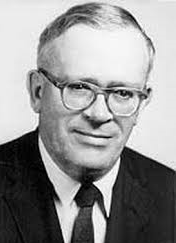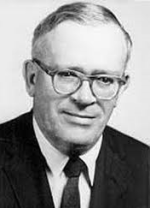Richard M. Weaver's Ideas Have Consequences, published 75 years ago, is not really a book about how ideas have consequences. It's a book about what one idea, propounded by the medieval friar William of Occam—"the fateful doctrine of nominalism, which denies that universals have a real existence"—has wrought through the ages.
...
Like the more extreme voices on today's New Right, Weaver seemed to question whether liberal order was compatible with human flourishing. But by the end of his life—he died suddenly at the age of 53—his tune had changed. Individual liberty, he eventually realized, was more than incidental to the good society.
...
Like many traditionalists, Weaver prioritized order above freedom. The chaos of the modern age struck him as a death sentence for Western civilization. "For four centuries every man has been not only his own priest but his own professor of ethics," he wrote, "and the consequence is an anarchy which threatens even that minimum consensus of value necessary to the political state."
That, at least, was how Weaver felt in 1948. Twelve years later, he published an essay on the similarities between conservatism and libertarianism that struck a different tone. Where the Weaver of Ideas Have Consequences was nonchalant about the use of government power, this Weaver took almost the opposite position.
"I maintain that the conservative in his proper character and role is a defender of liberty," he wrote in the May 1960 issue of The Individualist. "He is such because he takes his stand on the real order of things and because he has a very modest estimate of man's ability to change that order through the coercive power of the state."
...
More:

'Ideas Have Consequences' turns 75
Richard M. Weaver seemed to question whether liberal order was compatible with human flourishing. By the end of his life, he saw individual liberty as more than incidental to the good society.
Richard Malcolm Weaver, Jr (March 3, 1910 – April 1, 1963) was an American scholar who taught English at the University of Chicago. He is primarily known as an intellectual historian, political philosopher, and a mid-20th century conservative and as an authority on modern rhetoric. Weaver was briefly a socialist during his youth, a lapsed leftist intellectual (conservative by the time he was in graduate school), a teacher of composition, a Platonist philosopher, cultural critic, and a theorist of human nature and society.
Described by biographer Fred Young as a "radical and original thinker",[1] Weaver's books Ideas Have Consequences (1948) and The Ethics of Rhetoric (1953) remain influential among conservative theorists and scholars of the American South. Weaver was also associated with a group of scholars who in the 1940s and 1950s promoted traditionalist conservatism.
...

Richard M. Weaver - Wikipedia
I'm embarrassed to say that I do not recall ever hearing about this guy or his work.

